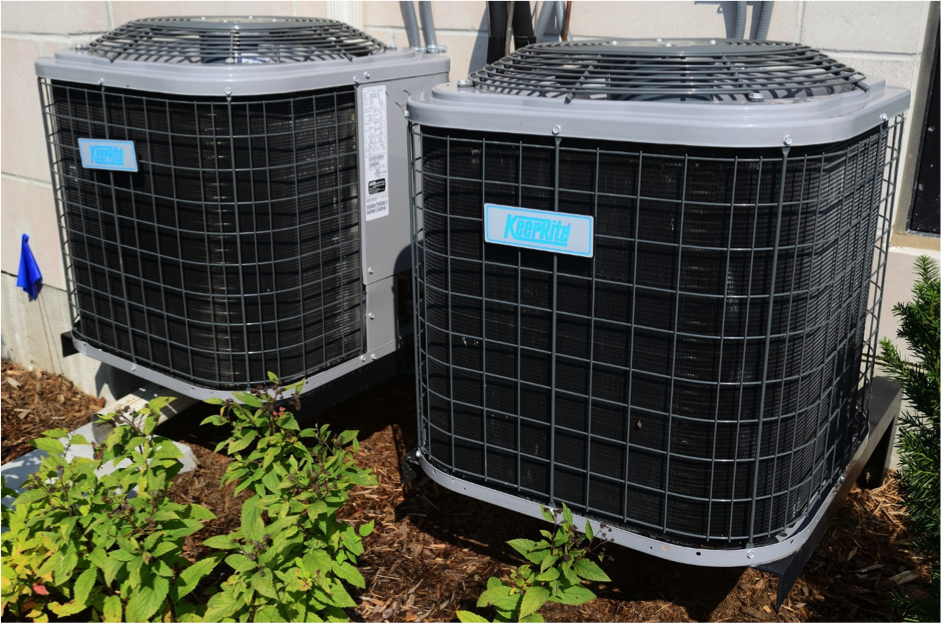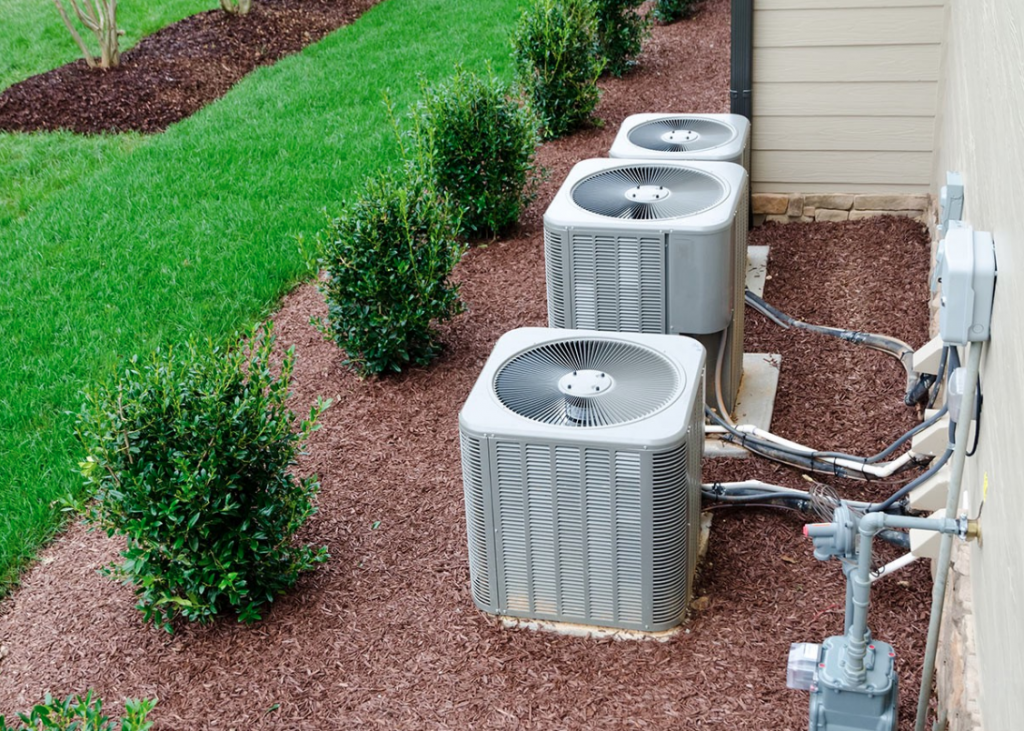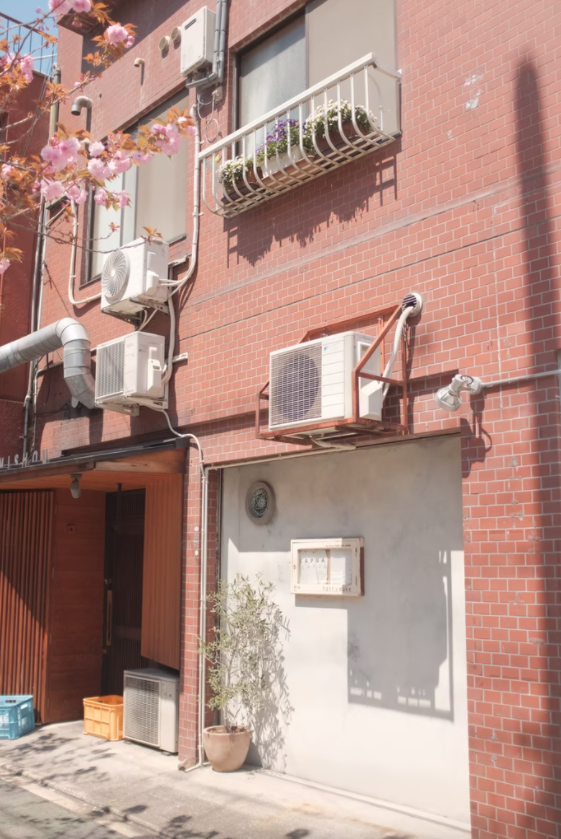Energy-Efficient Heating and Cooling Solutions for a Comfortable Home

Save energy at home while heating and cooling with these simple solutions that will save your money all while keeping your home at a comfortable temperature!

Why Energy Efficiency Matters in Heating and Cooling
In our modern world, energy efficiency is more than just a buzzword; it’s necessary. Reducing energy consumption in your heating and cooling systems saves money and decreases your carbon footprint. According to the experts, most greenhouse gas emissions come from residential energy use. Therefore, improving energy efficiency in these systems is crucial for environmental sustainability. Energy efficiency can be enhanced by making intelligent choices in home appliances, such as integrating whole house humidifiers, which help maintain optimal moisture levels and improve indoor air quality while operating efficiently.
Innovative Technologies in Heating and Cooling
Technology advancements have led to many energy-efficient heating and cooling solutions. An example would be smart thermostats that can understand your routine to enhance heating and cooling patterns. These devices adapt to your preferences and can be controlled remotely, which allows for more precise energy use. In recent years, there has been a notable improvement in the efficiency and effectiveness of heat pumps, enabling them to both heat and cool spaces. Modern heat pumps use advanced refrigerants with a lower environmental impact and operate efficiently even in frigid temperatures.
Smart Thermostats for Smarter Energy Use
Smart thermostats offer a blend of convenience and efficiency. They can work alongside other smart home devices and systems, offering a comprehensive approach to home automation. These thermostats provide detailed energy usage reports and can suggest ways to save energy, making them a valuable tool for homeowners aiming to reduce energy consumption.
Heat Pumps: Versatile and Efficient
Heat pumps are particularly efficient because they transfer heat rather than generate it, providing up to four times the energy they consume in usable heat. This makes them an excellent choice for heating and cooling in mild to moderate climates. Some advanced models even have variable-speed compressors that adjust output to match the heating or cooling needs more accurately, reducing energy waste.
Proper Maintenance: The Key to Longevity
Even the most advanced systems require proper maintenance to perform optimally. Regular service checks can identify issues before they become significant problems, ensuring your system remains efficient. Simple tasks such as changing filters, checking for leaks, and cleaning ducts can go a long way in maintaining your system’s performance. Organizations offer guidelines for maintaining HVAC systems to ensure they run efficiently. Regular maintenance enhances performance and extends your systems’ lifespan, providing a better return on investment over time.
Routine Checks and Filters Changes
Frequently replacing air filters is a straightforward yet highly beneficial maintenance chore. Blocked filters cause your system to exert more effort, increasing energy consumption. Depending on usage and indoor air quality, checking and replacing filters every 1-3 months is recommended.
Professional Inspections
Arranging annual professional inspections can help detect and resolve potential problems sooner. Technicians can perform comprehensive checks, including inspecting the thermostat settings, tightening electrical connections, lubricating moving parts, and verifying the accuracy of the system’s controls.

Behavioral Changes That Can Make a Big Difference
Sometimes, small behavioral changes can significantly impact your energy consumption. For example, using ceiling fans to circulate air can make a room feel more relaxed with less reliance on air conditioning. Similarly, ensuring that windows and doors are properly sealed can prevent drafts and reduce the need for heating. Adjusting your thermostat by a few degrees during different times of the day can also lead to substantial energy savings over time.
Maximizing Natural Light and Ventilation
Utilizing sunlight and airflow can reduce reliance on artificial heating and cooling systems. During cooler months, open curtains to let sunlight naturally warm your home. In warmer months, use blinds or shades to block out the heat and ventilate your home during the more relaxed morning and evening hours.
Using Energy-Efficient Appliances
Upgrading outdated, ineffective appliances with energy-saving models can result in substantial cost reductions. Look for appliances that meet federal energy efficiency standards. This applies to heating and cooling systems, water heaters, refrigerators, and other household appliances.
Environmental Benefits of Efficient Systems
Energy-efficient systems contribute significantly to environmental sustainability. By using less energy, these systems reduce the strain on utility grids and lower greenhouse gas emissions. The cumulative effect of the widespread use of energy-efficient systems can be substantial, moving us closer to global environmental goals. An energy-efficient home also sets a positive example within the community, encouraging greater adoption of sustainable practices.
Reducing Carbon Footprint
Energy-efficient systems help lower a household’s overall carbon footprint. This is particularly important as the world faces increasing challenges from climate change. Homeowners can mitigate these impacts by choosing energy-efficient options and promoting a healthier planet.
Supporting Renewable Energy
Renewable energy sources like solar or wind turbines can be used with many contemporary heating and cooling systems. Integrating these systems with renewable energy sources can further reduce reliance on fossil fuels, enhancing sustainability.
Choosing the Right System for Your Home
Selecting an energy-efficient system that fits your needs and budget is crucial. Consider factors such as the size of your home, local climate, and specific heating and cooling needs. Getting advice from an expert can assist you in making a well-informed choice, guaranteeing that you purchase a system that will offer comfort and efficiency for many years. Conducting a thorough energy audit to identify improvement opportunities and potential savings is essential.
Energy Audits and Assessments
An energy audit involves a detailed inspection of your home to identify areas where energy is wasted. Auditors use specialized equipment such as blower doors and infrared cameras to detect leaks and inefficiencies. The findings can help guide decisions on system upgrades and other energy-saving measures.
Considering Total Cost of Ownership
When choosing a new system, it’s essential to consider the total ownership cost, including the initial purchase price, installation costs, and long-term operating expenses. Sometimes, more expensive systems can pay for themselves over time through energy savings and reduced maintenance costs.
Final Thoughts
Investing in energy-efficient heating and cooling solutions is wise for your wallet and the environment. With the right system, proper maintenance, and small lifestyle changes, you can enhance your home’s comfort while contributing to a sustainable future. Explore your options and choose to go green today. By investing in energy-efficient systems and practices, you are not only improving your quality of life but also playing a critical role in global efforts to protect our environment. Remember, every small change counts; collectively, we can make a significant difference.








